Black Issues in Philosophy: The 2019 Caribbean Philosophical Awards Winners
by Lewis R. Gordon
The Caribbean Philosophical Association is pleased to announce the 2019 recipients of the association’s awards for contributions to philosophical thought, literature, and mentorship:
The Frantz Fanon Lifetime Achievement Award
Roxanne Dunbar-Ortiz
Catherine Walsh
Frantz Fanon Outstanding Achievements Award
Vijay Prashad
Nicolás Guillén Lifetime Achievement Award
Kamau Brathwaite
Robin D.G. Kelley
Stuart Hall Outstanding Mentorship Award
Hazel V. Carby
Frantz Fanon Outstanding Book
Ato Sekyi-Otu, Left Universalism, Africacentric Essays. Routledge, 2018
Nicolás Guillén Outstanding Book Award
Phillip Barron, What Comes from a Thing. Fourteen Hills Press, 2015
Rowan Ricardo Phillips, Heaven. Farrar, Straus and Giroux, 2015
The selections are made annually by the Caribbean Philosophical Association’s Awards Committee, which consists of all prior recipients of the Frantz Fanon and the Nicolás Guillén Awards (and, as of 2019, the Stuart Hall Award) and an appointed senior scholar and an appointed junior scholar. For more information, please consult the sites for the Frantz Fanon Awards, Nicholas Guillen Award, and Stuart Hall Award.
The award ceremony will take place at the Caribbean Philosophical Association’s international conference, June 6 – 8, 2019, at Brown University, Providence, Rhode Island, USA:
The Frantz Fanon Lifetime Achievement Award
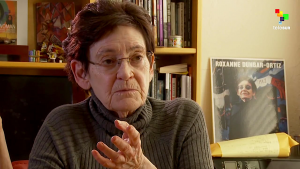

Roxanne Dunbar-Ortiz
The Caribbean Philosophical Association is honoring Professor Emerita Roxanne Dunbar-Ortiz for her legendary research and writings on Native American history, feminism, and the history of struggles for liberation, and for her work as an activist against settler colonialism and for dignity and freedom across the globe.
She is Professor Emerita of Native American Studies at California State University. Her many books include Roots of Resistance: A History of Land Tenure in New Mexico; The Great Sioux Nation; An Indigenous People’s History of the United States; and, most recently, Loaded: A Disarming History of the Second Amendment. She has been, and continues to be, involved in anti-imperialist and Women’s Liberation movements over the past fifty years.
According to the Committee’s report:
From the 1940s through the present, there has not been a generation of struggle of which Dr. Dunbar-Ortiz has not been a thoughtful and crucial part. In each moment, she has joined the political and intellectual to contribute indispensably and creatively to local and international pursuits for expanded and deepened self-determination. We are certain that if Fanon were alive, Dunbar-Ortiz would be among those whose research he would seek intellectual sustenance and with whom he would join in struggle.
See here for more on Professor Dunbar-Ortiz and here for a recent interview.
The Frantz Fanon Lifetime Achievement Award
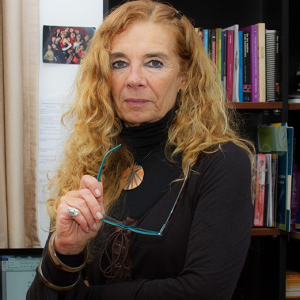

Catherine Walsh
The Caribbean Philosophical Association is honoring Professor Catherine Walsh for her globally influential research and scholarship on decoloniality, Indigenous struggles, critical pedagogy and philosophy of education, and her activism throughout the Global South and in North America. Professor Walsh began her career in bilingual education in Massachusetts and Rhode Island and then immigrated to Ecuador, where she teaches in the Andes Mountains with Afro-Ecuadorian and Indigenous peoples developing alternative pedagogies and models of theories from the Global South.
Dr. Walsh is Professor of Literature and Cultural Studies at the Universidad Andina Simón Bolívar in Quito, Ecuador, where she is also Founding Director of the Doctoral Program in Latin American Cultural Studies and Coordinator of the Afro-Andean Document and Archival Fund. She is an ongoing Visiting Professor in the Department of Romance Languages and Literature and the Program in Latin American Studies and Spanish at Duke University in Durham, North Carolina. Her many books include Enabling Academic Success for Secondary Students with Limited Formal Schooling; Indisciplinar las ciencias sociales: Geopolíticas del conocimiento y colonialidad del poder. Perspectivas desde lo andino; Pedagogías decoloniales. Prácticas insurgentes de resistir, (re)existir y (re)vivir; and more recently, with Walter Mignolo, On Decoloniality, the inaugurating text for the series they co-edit with Duke University Press.
According to the Award Committee’s report:
Walsh is one of the leading senior scholars and activists in decolonial studies, critical pedagogy, and global feminist thought…. Her writings are brilliant and her dedication committed. She embodies the meeting of thought and praxis for which the namesake of this award is known.
For more information on Professor Walsh, see here and here.
Frantz Fanon Outstanding Achievements Award
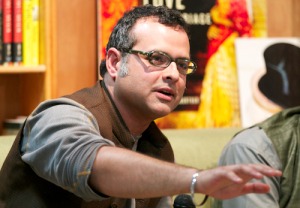

Vijay Prashad
The Caribbean Philosophical Association is honoring Professor Vijay Prashad for his global work as an activist, historian, journalist, and builder of institutions. Now the Executive Director of The Tricontinental Institute for Social Research, he is the author of twenty-five books, which include The Karma of Brown Folks, Untouchable Freedom,Everybody Was Kung Fu Fighting, The Darker Nations, No Free Left, andRed Star Over the Third World, hundreds of articles in political forums, newspapers, and academic journals.
The Award Committee’s report states:
Prashad’s reputation for fierce activism extends back to his youth, when he was, on many occasions, beaten and tortured without failing to continue fighting for social transformation. His many achievements as a world-renown scholar were always guided by commitments to truth, justice, and liberation on a global scale. If Fanon were alive, we are certain that he would at some point be in conversation with Prashad.
In addition to The Tricontinental staff biographical statement, see here.
Nicolás Guillén Lifetime Achievement Award
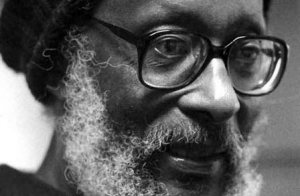

Kamau Brathwaite
Professor Emeritus Kamau Brathwaite is being honored as one of the Caribbean’s giants of letters. His work is the subject of many dissertations, literary and philosophical studies, and historical works on Caribbean and African diasporic history. In addition to his literary, philosophical, journalist, and historical work, Professor Brathwaite also participated in varieties of educational projects on the African continent and throughout the Caribbean and North America.
In the words of the Awards Committee:
Brathwaite is one of the Caribbean’s greatest living poets and philosophers. He is a co-founder of the Caribbean Artists Movement. In addition to his many books of poetry, which are studied world-wide, there are his theoretical and ethnographic writings on language and folklore. Dissertations and other studies of his work abound, and his commitments to shifting the geography of reason included his participation in the founding of the Institute for Caribbean Thought in Jamaica, which, along with the meetings in honor of Sylvia Wynter and George Lamming, was a catalyst for the formation of the Caribbean Philosophical Association. He was also active alongside Guillén in bringing together what Paget Henry describes as the Caribbean poeticist and historicist traditions. It is an honor for our association to be in a position to celebrate this great intellectual.
Among the many websites on which to seek information about Brathwaite’s life and thought, we recommend this link.
Nicolás Guillén Lifetime Achievement Award
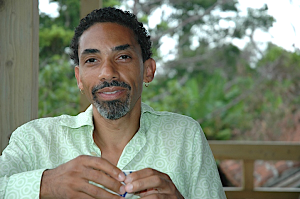

Robin D.G. Kelley
The Caribbean Philosophical Association is honoring Professor Robin D.G. Kelley for his groundbreaking work of bringing together the history of African diasporic radical politics with the life-affirming creativity of Black aesthetic production. He has taught in universities across the globe and is now Distinguished Professor and Gary B. Nash Endowed Chair in U.S. History and Black Studies at UCLA. His books include the critically acclaimed and influential Hammer and Hoe, Race Rebels,Freedom Dreams, Into the Fire, Thelonius Monk, and Africa Speaks, America Answers!: Modern Jazz in Revolutionary Times.
According to the Committee:
Kelley is the greatest historian of his generation working on the African diaspora. We have selected him for the Guillén because his research not only examines intersections of race and class but also the importance of Black aesthetic production in revolutionary movements. His recent writings have focused so much on the arts that honoring him for philosophical literature recognizes his important contributions there, especially in the genre of jazz or African-American classical music, and the direction in which his overall work is headed. He is also known for his extraordinary writings on Negritude poets, particularly Aimé Césaire.
For more information about Professor Kelley, please consult this site.
Stuart Hall Outstanding Mentorship Award
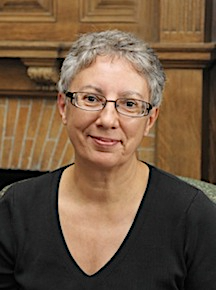

Hazel V. Carby
This will be the first year in which the Caribbean Philosophical Association grants the Stuart Hall Outstanding Mentorship Award. The Committee has voted to honor Professor Hazel V. Carby because of her taking on the mantle of Stuart Hall, who was her mentor, in the cultivation of Black Cultural Studies in the United States. Professor Emerita Catherine Hall granted permission to the Caribbean Philosophical Association to create this award in her late husband’s memory. She offered this note for the association to include in its press release upon learning of Professor Carby’s being the first recipient:
I am thrilled that [Carby] has been named as the first recipient of the first Stuart Hall Mentor’s award given by the Caribbean Philosophical Association. … It is a very fitting recognition of the major work that [she has] done and the contribution [she has] made.
Among Professor Carby’s former students consulted was Professor Michelle Stephens, who is now Dean of the Humanities at Rutgers University. Here is an excerpt from Dean Stephens’s letter:
Hazel was very much a student of Stuart Hall, replicating administratively and pedagogically his enduring insight that African diasporic peoples inhabit modernity from a position askance to traditional bodies of knowledge. In engaging with such traditional fields, as English, Art History, Sociology, Political Science, History, Philosophy and Psychology, [she] brought a different set of questions to the table that required the development of new, interdisciplinary research methodologies….
In my own intellectual formation, it was Hazel Carby who first introduced me to Stuart Hall. It was Hazel Carby who helped me to see Hall’s greatest observation, one that went on to define the way I think of myself as a cultural studies scholar. Rather than simply contesting others’ representations, for both Hall and Carby what was singular in 20th century black cultural production was the ways in which black artists were seeking to claim the field of representation for themselves in new ways. But it was also Hazel Carby who, in introducing me specifically to Hall’s 1990 essay, “Cultural Identity and Diaspora,” stimulated my full-blown awareness that a transatlantic conversation about blackness had to recognize the Caribbean as the third, crucial interlocutor in a dialogue emerging between black British and African American academics.
Professor Carby’s achievements are many. She is the Charles C. and Dorothea S. Dilley Professor of African American Studies and American Studies at Yale University. Her books include the influentialReconstructing Womanhood. The sites here, here, and here offer information on her scholarship and other accolades:
Frantz Fanon Outstanding Book
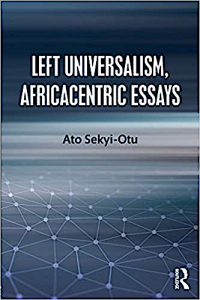

Ato Sekyi-Otu, Left Universalism, Africacentric Essays. Routledge, 2018:
Ato Sekyi-Otu is Professor Emeritus in the Department of Politics at York University in Canada, where he taught political theory and African politics for many years. A giant in contemporary African social and political thought, he also is author of the much- acclaimed Fanon’s Dialectic of Experience.
For more on Professor Sekyi-Otu, see here.
Nicolás Guillén Outstanding Book Award
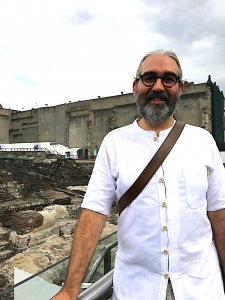

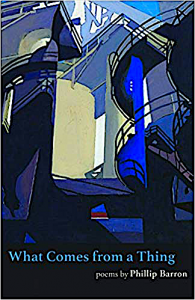

Phillip Barron, What Comes from a Thing. Fourteen Hills Press, 2015.
Phillip Barron is a philosopher, poet, photographer, digital artist, journalist, and educator. He has worked as a digital media specialist at the Center in Research Triangle Park, North Carolina, taught philosophy and literature in universities across the United States, and is now completing his doctorate in philosophy at the University of Connecticut at Storrs. Among his accolades is the Michael Rubin Award at San Francisco State University.
What Comes from a Thing is his much-acclaimed first book of poetry. Here is an excerpt from the referee report submitted to the Caribbean Philosophical Association’s Award Committee:
This is a stunning piece of poetic philosophical work. It is a masterpiece of phenomenological description in which poetry is not application or a technique for profundity but instead at the heart of philosophical/poetic evocation. From explorations of witnessing a death sentence to considerations on history that would make Walter Benjamin stand as a pale comparison, this work takes on the vicissitudes of existence, including a majestic poem on infinity and infinitesimality, in addition to explorations of violence and vulnerability. The author explores these themes through the accompanying voices of philosophers across the ages. Although this is not a work in Caribbean literature, it is a clear exploration of class and place—particularly geographical place—in which what could be called “southern thought” looms in the sense of voices from the periphery. I think it would be a bold consideration for this award. It is a clear example of more than philosophy, more than poetry, what could also be called “poetics.”
For more information about Phillip Barron and his work, see hisamazon.com website.
Nicolás Guillén Outstanding Book Award
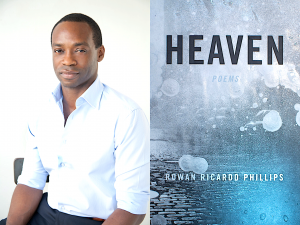

Rowan Ricardo Phillips, Heaven. Farrar, Straus and Giroux, 2015.
Professor Rowan Ricardo Phillips is an award-winning poet who teaches at Stony Brook University and lives in New York City and Barcelona mediated by times well spent in his parents’ native island of Antigua. A protégé of the great Michael S. Harper at Brown University, he inaugurated his career with a dissertation on Africana poetics and since then has written in a variety of genres ranging from poetry to theoretical work to sports writing and other forms of journalism and social commentary across the globe. His accolades include the 2013 Whiting Award and an Anisfield-Wolf Book Award in 2016.
Here is an excerpt from the referee reports submitted to the Awards Committee:
This is a beautiful collection of poetry interweaving the complexity of imagining the ideal and the utopic. Heaven is often confused with paradise, Phillips ultimately argues, but its demands—here interwoven between Christian and Pagan motifs from antiquity—reach for the ever elusive but desired. I see why it has received so many accolades. As the author is also a child of Antigua, acknowledgment from an organization focused on that region’s significance would be a poignant testament to this artist’s efforts.
For more information on Professor Phillips, please consult the entry on him on the Poetry Foundations’ site and his website.
To learn more about the Caribbean Philosophical Association, please consult its website.





